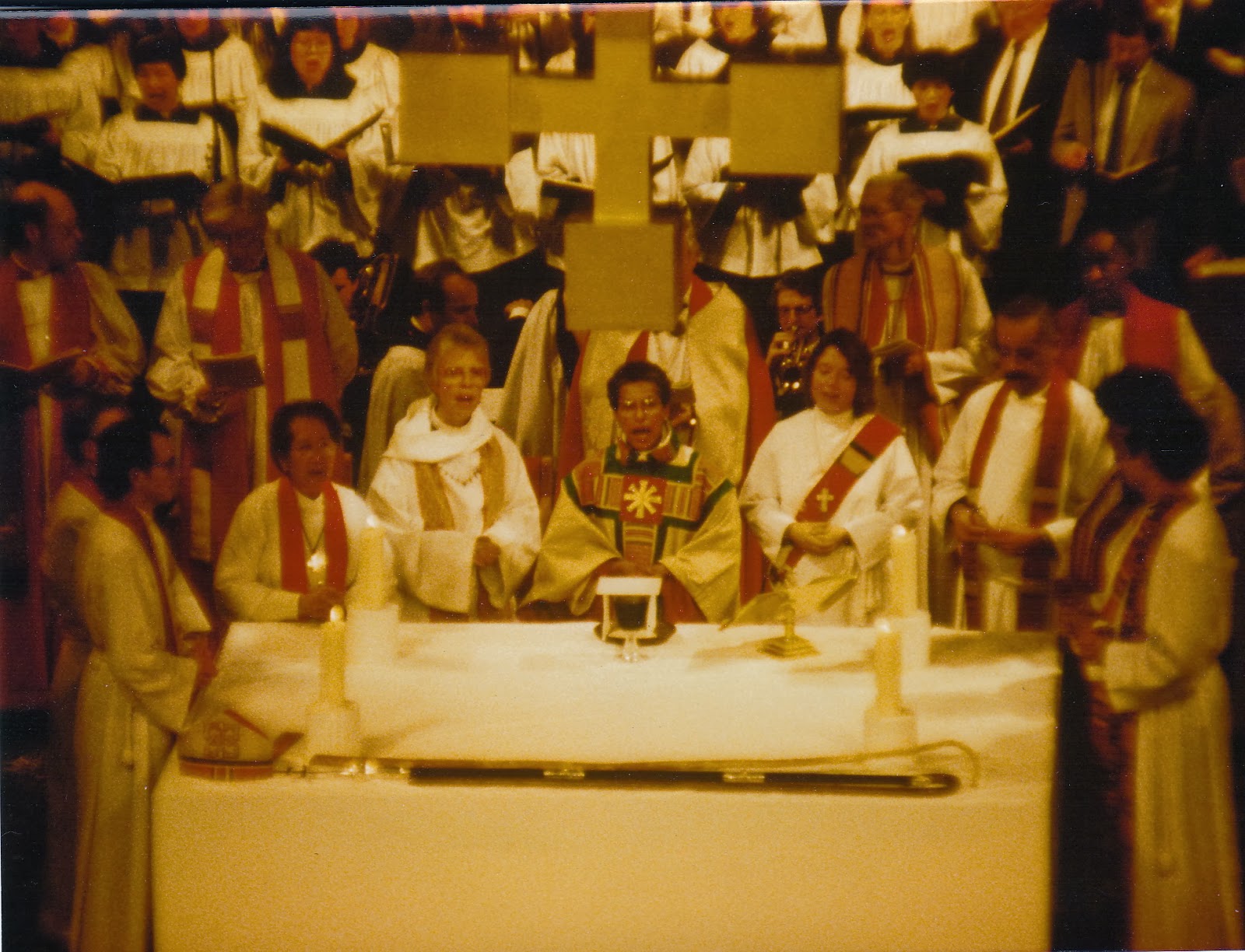The Collect and Revised Common Lectionary readings for this First Sunday of Advent, Year B, are here.
These
are two excerpts (beginning and end) from a sermon I preached on the first Sunday of Advent exactly six years ago (i.e. in the same cycle of readings, Year B) at Trinity
Episcopal Church in Canton, Massachusetts, a racially mixed (African American and
White, with a few West African members) parish, in the wake of the
events in Ferguson, Missouri: the killing of Michael Brown, an unarmed, young Black man
by a police officer and the announcement this week that the Grand Jury
did not indict the officer, followed by outcries and demonstrations of
protest in Ferguson and around the U.S.
O that you would tear open the heavens and come
down
so that the mountains would quake at your presence
--as when fire kindles brushwood and the fire
causes water to boil—
to make your name known to your adversaries,
so that the nations might tremble at your presence!
[Isaiah 64:1-2]
Chaos and anguish.
Lament and longing.
Social unrest.
Scary weather.
This is what we hear in
our readings
for the first Sunday of
Advent.
Today is the beginning of
the season of preparing
for Christmas,
the Nativity of Jesus,
who came to us as a child
born in poverty,
and who at a very young
age
became a migrant child,
carried by his parents to
Egypt
so that he might be safe
from the long reach
of violent tyranny.
And speaking of migration:
the part of the book of Isaiah we heard
is a book of exiles
returning home
bewildered, traumatized.
In the middle of finding
their bearings.
In a harsh, disoriented time.
In the image given to
us by the Psalm,
we drink bowls of our own
tears --
bowls of tears! ...
... Jan Richardson,
an artist, Methodist
minister, and poet
says of today’s Gospel passage
that it
“doesn’t so much beckon us
across the threshold” of Advent
“as it throws open a door,
tosses a cup of cold water
in our face to wake us,
and shoves us through.”
Not very cheery.
... There’s no getting
around it.
This is a difficult
and painful season for many of us.
Difficult for those of us who suffer from depression
or who are living with addiction.
Painful for those whose
relationship with their families
is challenging
or conflicted
or non existent.
Difficult, even disastrous,
for refugees from our own
Long Island Shelter in
Boston,
hundreds of people
who now are doubly
homeless
because of lack of timely repairs
on the bridge to the island.
It is wrenchingly painful for
the parents of Black and brown children,
especially Black and brown
boys and young men,
who are full of fear every
time their child leaves the house.
Is is discouraging and
angering in the face of the lack of indictment in Ferguson
for an officer shooting
and killing an unarmed young man.
It is discouraging for
those law enforcement professionals
who do their jobs with
care and honor
and a sense of
responsibility.
It is frightening in a
season of rising oceans and climate change.
It is enough to make us
raise our voices in anguish and say to God,
GOD?
WHERE ARE YOU?
GET OVER HERE!
or
COME ON, JESUS!
SHOW UP!
So it was
for the people
from whom
and for whom
the Gospel of Mark was written...
[There followed several paragraphs about staying awake, reading the signs of the times,
mindfulness, vigilance, and faithfulness.]
... We cry, with the Psalmist,
Restore us, O God of hosts;
show the light of your countenance, and we shall be saved.
[Ps. 80:3,7]
This is not the ordinary light,
not that of electricity,
not even that of the moon and stars,
not that of the sun.
It is
a different light:
the radiant darkness of God
the Word that comes to us when the ordinary perceptions have gone.
This may well be why
we have this earth- and heavens-shaking
entry into Advent:
to return us to a different light.
Our opening collect calls us to “cast away the works of darkness.”
I want to offer us an alternative, which is to cease equating darkness with what is evil
and rather, to embrace the dark. To see the dark as the place where God is with us.
A radiant darkness.
So let us pray, in words given to us by Janet Morley,
God our deliverer,
whose approaching birth
still shakes the foundations of our world:
ay we so wait for your coming
with eagerness and hope
that we embrace without terror
the labour pangs of the new age,
through Jesus Christ, Amen.[1]
Janet Morley, Collect for Advent Sunday, in
All Desires Known: Inclusive Prayers for Worship and Meditation, expanded
edition (Harrisburg, PA: Morehouse, 1992), 4.




















